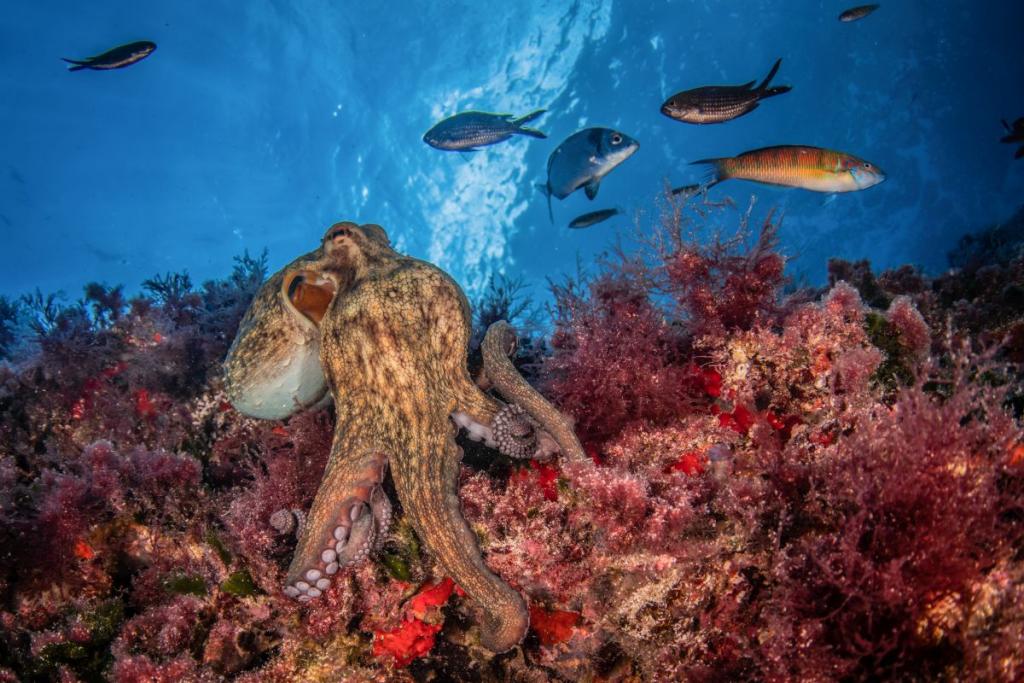Blog

Recommendations for a sustainable diving experience
These are some recommendations for a sustainable diving experience:
-
When accessing diving areas from the coast, passing through natural habitats, plants and animals must be respected, no matter how insignificant they might seem.
-
Rubbish or waste must not be thrown on the ground or left behind.
-
When accessing by boat or other craft, avoid pouring oil or fuel into the sea, as well as dumping other waste (empty containers, packets, cigarette stubs...).
-
When anchoring, use the buoys provided for that purpose, and if there are none, anchor over clear sandy patches to avoid harming the rocks and seagrass meadows of Posidonia oceanica.
-
On the descent, check flotation so as not to stand on the bottom, since a large part of the damage to the surroundings is produced involuntarily by carelessness with flotation. Adequate control of buoyancy will make the dive safer and more comfortable, avoiding damage to the bottom and reducing air consumption.
-
When swimming around, do it on the level at least one metre from the bottom and trying not to disturb the bottom with the action of the flippers, for as well as muddying the water, it is prejudicial to the organisms that filter particles and to others adhering to the substrate.
-
It is best not to carry the auxiliary regulator, lamp, etc. hanging down so as to avoid them dragging along the bottom or getting snagged on anything protruding.
-
Avoid forming large groups of people that make diving awkward, often scaring fish away and nearly always muddying the water.
-
Do not feed fish and other creatures, since it creates improper feeding habits which, as well as modifying their behaviour, may cause metabolic alterations.
-
Do not touch or pester the species, which includes not cutting the spines of sea urchins or annoying any long-suffering octopus that might be around. Act responsibly with regard to the environment.
-
Do not turn rocks over or move living organisms like shells, etc. since it exposes their inhabitants to the risk of predation.
-
Do not remove anything living from the seabed. It is best to take photos as souvenirs to remember them by.
-
If you see plastic bags floating in the water, try to remove them to avoid them being ingested by any of the animals.
-
Avoid prolonged stays inside caves or the like, as the bubbles released may harm their inhabitants.
-
When observing creatures, try not to make sudden movements or to pursue them, as they will escape. Remember they are not toys and unsuitable behaviour by divers may make them become elusive or even aggressive.
-
A knowledge of the different species and natural richness of the seabed will help to make the dive more enjoyable and respect the environment. So it is highly recommended to take some course in marine biology or read up well on the subject.
-
Plan the dive and know in advance the itinerary to be followed.
